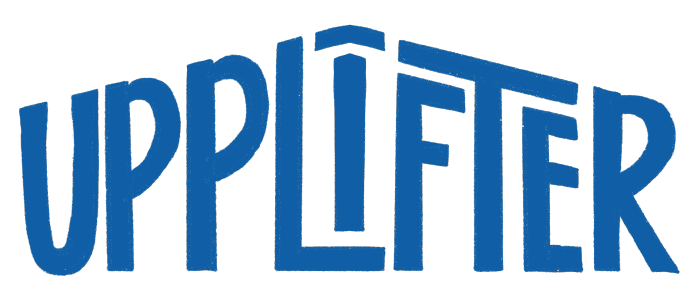Gratitude journaling is the act of writing down things for which you are grateful.
Though many people have heard the term gratitude journaling, they often don’t fully understand the short and long-term benefits of practicing it.
In this fast-paced on-the-go lifestyle many of us live, it can be difficult to slow down enough to smell the roses. Most of us become accustomed to certain luxuries, whether it be the people in our lives, a nice home, food on the table, or a job that we love, there is always something to be grateful for. But sitting down to write out what those things are can be a bit more tricky.
If the COVID-19 pandemic has taught us anything, it’s that there is no guarantee of tomorrow nor is there a promise that life will be the same or even remotely similar as it was the day prior.
It’s easy to fall into the trap of overthinking and negative thinking. Learning how to counteract those thoughts with gratitude becomes paramount.
WHAT DOES IT MEAN TO BE GRATEFUL?
Gratitude, by definition, is the state of being grateful.
While coming as no surprise, gratitude can give us a sense of peace because it forces us to look at the positive in our lives instead of falling down the trap of focusing on the negative.
Gratitude often accompanies happiness, since while we are thinking grateful thoughts and experiencing the emotion behind them, happiness is usually one of the byproducts.
Gratitude also offers a level of perspective not often felt in the stressors of everyday life. When we pause and reflect on what we are grateful for, we illuminate the people, places, and experiences that mean the most to us, which gives us perspective on what is essential and what is not.
If you’re struggling at work and find it tough to be thankful for anything, take a moment to reflect on your family and friends and the people in your life who are there for you and who bring you joy. Once you learn how to do this consistently, your mood will begin to improve on gratitude alone.
And although some people have more in their lives than others, whether it be material wealth, friends, family, or experiences, we all can think of at least one thing in our lives that brings us a feeling of gratitude. Even if it’s as simple as being thankful for being alive today, there’s always something you can lean on with gratitude.
CHANGES OUR PERSPECTIVE OVER TIME
Gratitude journaling has a way of changing our perspective on life over time. It’s second nature for many of us to automatically think of the worst-case scenario. Stressors and anxiety can make this negative-based mindset even worse over time. We can become obsessed with negative thinking and catastrophizing.
But gratitude journaling can change this negative thought process. When you consistently write down things in your life that you’re grateful for, it can have a long-term impact on your mindset. You’ll begin to look for the positive in a situation instead of jumping to the negative. Writing these grateful things down daily can also shed light on the good in your life, which in turn can help create a feeling of joy and peace not felt when focused on negative events.
REDUCES STRESS AND ANXIETY
Stress is one of the leading causes of some major health issues, including heart disease. We all experience stress on some level, but some experience it much more intensely than others. Some studies show how gratitude can have a positive influence on stress. One of the reasons that gratitude journaling is powerful is because grateful people tend to have the psychological resources to manage stress more productively. In this particular study, people who practiced gratitude were more likely to manage stress by looking for the positive in negative situations, seeking others for help, and actively coping and planning.
DECREASES TOXIC EMOTIONS WITHIN US
There have been some interesting studies done on gratitude and its effects on mental health. One study analyzed patients who were suffering from anxiety and depression.
The study was performed as follows:
“We randomly assigned our study participants into three groups. Although all three groups received counseling services, the first group was also instructed to write one letter of gratitude to another person each week for three weeks, whereas the second group was asked to write about their deepest thoughts and feelings about negative experiences. The third group did not do any writing activity.”
The patients that participated in the gratitude writing experienced significantly better mental health four weeks and twelve weeks after the writing had ended. And the study brought to the surface other fascinating details about the potential benefits of gratitude.
IN REVIEW
Gratitude journaling is a powerful tool in the mental health toolbelt. There are many unique ways to journal, but gratitude journaling is one of the most rewarding. It’s also easy and quick to do. All you need is a pen, a journal, and a few moments of quiet reflection. The benefits of gratitude journaling far outweigh the few moments you’ll spend jotting down your thoughts.
Although we strive to provide accurate general information, the information presented here is not a substitute for any kind of professional advice, and you should not rely solely on this information. Always consult a professional in the medical and health area for your particular needs and circumstances prior to making any medical or health-related decisions. For your health-related questions, please seek the advice of a licensed physician or any other qualified health care provider immediately.
Latest posts by Brad Coreno (see all)
- 8 Proven Tips To Improve Your Communication Skills - April 29, 2022
- 5 Proven Ways To Manage Work-Related Anxiety - April 3, 2022
- 10 Steps To Develop A Growth Mindset - March 13, 2022
